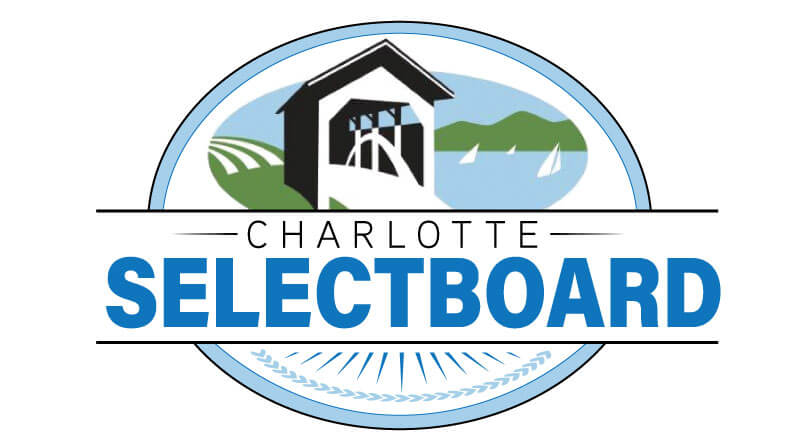Debate over land-use updates begins
Amid technical difficulties on Zoom, the Charlotte Planning Commission’s proposed changes to the town’s land-use regulations kept the selectboard up late on Sept. 19. Though the meeting ended past 10 p.m., the board still hasn’t decided whether to send the amendments to the voters.
The planning commission’s two-phased project to modernize the 136-page document that governs development in Charlotte began last year with the help of town planner Larry Lewack. The first set of revisions, which the selectboard must approve or reject one-by-one for the November ballot, intend largely to clean up that rulebook’s ambiguities and anachronisms in anticipation of a second round of potentially more substantive changes next year, expected to arrive in time for Town Meeting Day.
Several of these preliminary edits simply mirror new state statutes, but they come packaged with a handful of discretionary modifications. Some pack more of a punch than others. One, for instance, would loosen restrictions upon additions to grandfathered structures that violate property line setbacks; another would free owners of adjacent nonconforming lots from a prior obligation to merge them before a sale in order to meet minimum lot size requirements.
 Charlotters have had plenty to say about the amendments, and a public hearing held by the planning commission last month lasted more than two hours. This time, selectboard member Matthew Krasnow cautioned against attempts to rewrite the planning commission’s proposals, given the review that had already taken place.
Charlotters have had plenty to say about the amendments, and a public hearing held by the planning commission last month lasted more than two hours. This time, selectboard member Matthew Krasnow cautioned against attempts to rewrite the planning commission’s proposals, given the review that had already taken place.
“I think the selectboard’s job, as the gatekeeper to the ballot, is to decide if something is ready for voters to vote on,” he said. “If we don’t think it’s ready, based on what we’re hearing in the room, we should cease discussion and take that one off the table. It’s not our job to come up with the language for the voters; that’s the planning commission’s.”
Even so, several amendments prompted lengthy debate among both town officials and members of the public. The most significant fight addressed the question of accessory dwelling units.
In 2020, Act 179 by the Vermont General Assembly (“An act relating to promoting affordable housing”) simplified permitting for accessory dwelling units (ADUs) across the state. The legislation overrode Charlotte’s two-bedroom limit for these structures.
Up to a point, however, Act 179 still allows municipalities to restrict the square footage of their accessory dwelling units. Currently, Charlotte allows accessory dwelling units that don’t exceed 30 percent of the habitable space of the property’s primary dwelling or 1,000 square feet, whichever is greater. The planning commission wishes, voluntarily, to replace the number 1,000 with 1,500, based on the rationale that the existing standard penalizes owners of smaller houses when they decide to build accessory dwelling units.
On Sept. 18, the Charlotte Conservation Commission announced its opposition to the ADU plan in a letter to the selectboard: “Expanding the size limit for ADUs has several conservation impacts that will occur town-wide in every district, which include: increasing the total number of acres and percentage of land that could be developed and turned into impervious surface; increasing the amount of habitat fragmentation; increasing the intensity of human development and activity (lighting, noise, pets, pollution, etc.) which negatively impacts wildlife.”
Comments at the selectboard meeting reflected similar worries over new density in town.
“I find 1,500 square feet excessive,” a resident opined. “And I’ve talked to a lot of people in town, and they don’t support this either.”
Other attendees expressed enthusiasm. “I’m completely in favor of this because the town needs more available homes for people,” one man said.
Board chair Jim Faulkner proposed a pause on the discussion at 10:15 p.m. The selectboard will take up the land-use regulations again on Sept. 27 at 7 p.m.

